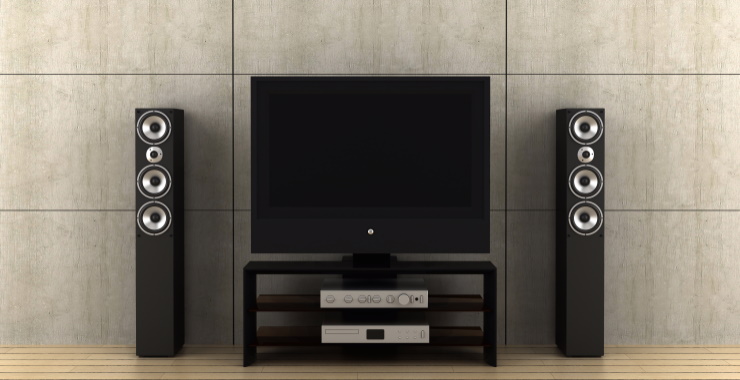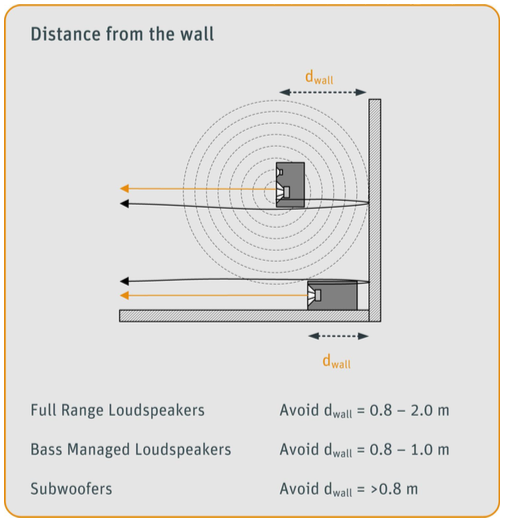With the speakers in this position listen to a relatively detailed familiar 30 second part of a track the more familiar you are with it the better.
Floor standing speakers distance from wall.
This influences something called standing waves.
It s vital that the listener sit exactly between the two loudspeakers and at the same distance from each.
At low frequencies the performance is determined by the overall dimensions of the room.
Firstly place your speakers right up against the wall flat out not toed in and the appropriate distance apart usually 1 5 2 5m depending on relative listening position and aesthetics.
F c c 4d fwall where f c is the center frequency of the cancellation notch and c is the speed of sound at sea level in dry air at room temperature the speed of sound is 343 m s or 1125 f s.
Doing this will ensure that your speaker is working as it was designed and not emphasizing bass frequencies from being found in proximity to a wall.
Turn the speakers so the the sounds reach behind your ears.
Position yourself nearer the speakers not 60 60 60 but 90 45 45.
Any back ported speaker with a port diameter of 2 for example will work just fine placed up to a wall as long as there is 2 of space behind the port.
There s a zone between 1m and 2 2m that ideally you want to avoid.
If d fwall is the distance to the wall behind your speaker you can calculate the quarter wavelength cancellation frequency using this formula.
But how far you might want to sit from any particular speaker will depend on the speaker.
Doing so will prevent the speakers from creating standing waves and exciting room resonances the peak and valley null nodes when reflected frequency responses are in or out of phase with each other.
If you really do have a huge room to work with pull the speakers away from the wall.
The speakers and listener should form a triangle.
So a shallow triangle.
Position the speakers so that the distance between the front wall is 1 3 to 1 5 the length of the room.
The stereo sound appear virtually more separated and spacious.
Keep the speakers on the floor little away from the wall.
Like stand mounted bookshelf speakers floor standing speakers or tower speakers should also be moved two feet away from any boundary or wall.
We also deal with boundary effects or boundary loading which is the proximity of the speaker to the floor the back wall the ceiling and side walls.
Height width and depth.
Get away from the wall.
Time aligned speakers tend to require a certain distance for the drivers to coalesce into a properly integrated combined soundfield.










